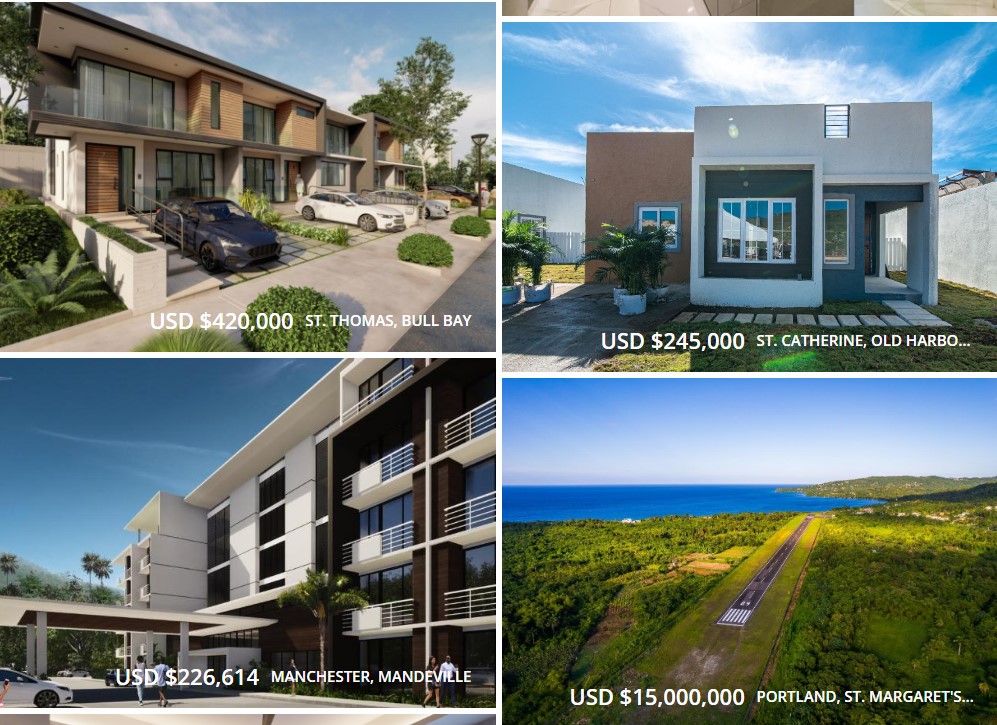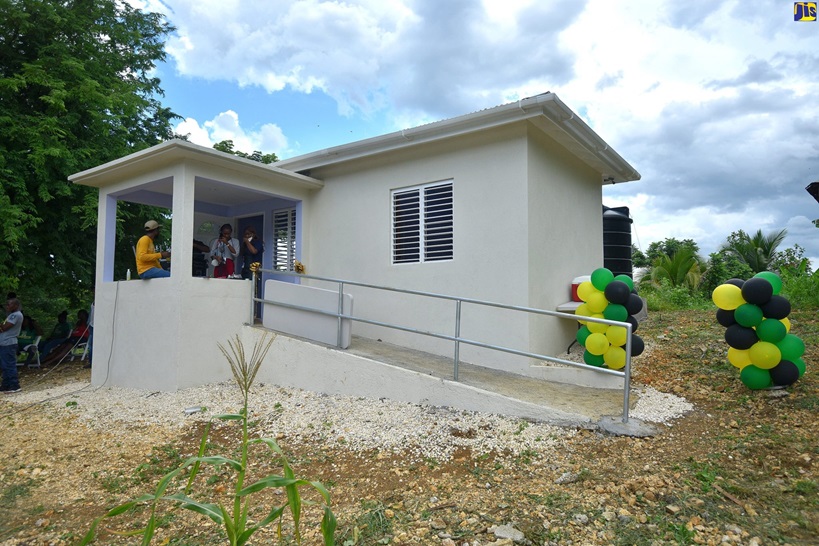The Housing Crisis in Jamaica: How USD-Priced Real Estate and Rising Costs Threaten Local Communities and Culture
Over recent years, Jamaica’s real estate market has seen an increasing number of properties priced in United States dollars (USD) rather than Jamaican dollars (JMD). While this shift reflects growing international interest and investment in Jamaica’s real estate, it also has serious implications for locals, especially as wages struggle to keep pace with escalating housing costs. The National Housing Trust (NHT), established to make housing more accessible, offers loan programs to support Jamaicans; however, current loan limits often fall short in a market where prices are steeply rising and increasingly quoted in USD. This trend, while offering undeniable short-term economic gains, poses substantial risks to the long-term viability of Jamaica’s housing market, local culture, and sense of community.

USD-Priced Real Estate: A Boon for Investors, a Burden for Locals
Historically, properties in Jamaica were priced in JMD, making the market more accessible to locals and reflective of the local economy. However, as high-end developments increase and foreign investors look to Jamaica as a desirable destination, real estate pricing has shifted towards USD, especially in sought-after areas. Pricing properties in USD helps developers and foreign buyers mitigate the risks associated with currency fluctuations and inflation. However, this practice makes it increasingly challenging for Jamaican buyers, whose income and savings are primarily in JMD, to compete.
For those earning the Jamaican minimum wage of 15,000 JMD for a 40-hour workweek, saving for a home has become nearly impossible. Even middle-income families who do not qualify for low-income assistance programs often find themselves unable to meet the demands of a market geared toward wealthier, often foreign, buyers. The result is a significant affordability gap that widens economic disparities, leaving many Jamaicans struggling to achieve homeownership or even secure stable rental housing.
The National Housing Trust: A Well-Intentioned but Insufficient Solution
To address the housing needs of locals, the Jamaican government established the National Housing Trust (NHT). The NHT offers loans with limits designed to make housing more affordable, but recent housing price trends have outpaced these loan offerings. As of July 2024, NHT’s maximum loan limit for a single applicant purchasing an open market home is 7.5 million JMD, with joint applicants eligible for up to 15 million JMD. While these loans provide critical support, they fall short in a market where even modest homes often exceed these values, especially as more properties are priced in USD.

The one bedroom house that was handed over to St. Elizabeth resident, Winston Wint, on July 17, under the Government’s New Social Housing Programme (NSHP).
Prime Minister Andrew Holness has also launched the Housing, Opportunity, Production, and Employment (HOPE) program to help low-income and indigent families with a 1 billion JMD allocation. This program is tailored to those with irregular incomes or little financial stability. However, a significant portion of middle-income earners still falls through the cracks, earning too much to qualify for HOPE but too little to afford even a starter home without taking on substantial debt. The result is a growing segment of Jamaicans unable to meet their housing needs, regardless of their efforts to save or qualify for assistance.
Impacts of the Housing Crisis on Jamaican Locals
The combined effects of USD pricing in real estate, the inadequacy of NHT loan limits, and the escalation of housing costs have far-reaching consequences for Jamaicans. Here are some key impacts:
- Escalating Financial Burdens: Even those who qualify for NHT loans often need to take out additional loans to meet the gap between the loan limits and market prices, increasing their overall debt and financial stress. This perpetuates a cycle of long-term debt and financial insecurity, making it challenging for families to build wealth or improve their financial standing.
- Stalled Homeownership Goals: Many Jamaicans view homeownership as a critical step toward financial stability. Yet, with current market conditions, even families who save diligently find themselves priced out, delaying or abandoning these aspirations. This limits opportunities for social mobility and community stability.
- Growing Wealth Inequality: Wealthier foreign buyers and Jamaicans with access to foreign currency find it easier to navigate the real estate market, widening the socioeconomic divide. As housing becomes less accessible to locals, wealth inequality deepens, and low- to middle-income families face limited paths to financial security.
- Increased Demand for Informal Housing: As formal housing options become less attainable, many Jamaicans are pushed toward informal settlements, where basic infrastructure and access to services are often inadequate. This poses risks to health, safety, and overall quality of life.
- Strained Rental Market: With more locals unable to afford homeownership, the demand for rental properties increases, leading to higher rents and greater financial strain on families who struggle to find stable, affordable housing.
- Potential Brain Drain: Frustrated by an inaccessible housing market, some Jamaicans may seek opportunities abroad, resulting in a potential “brain drain” as skilled workers leave. This migration weakens the local workforce and reduces the talent pool available to drive Jamaica’s economic development.
Cultural Implications: Erosion of Community and Cultural Authenticity
One of Jamaica’s greatest assets is its vibrant culture, which draws tourists from around the world. This culture, however, is intrinsically tied to the local population, who embody its values, traditions, and spirit. As Jamaicans are priced out of their own communities, there are serious cultural repercussions:
- Loss of Cultural Authenticity: Culture thrives in shared spaces—community markets, festivals, and local gatherings. Financial strain prevents locals from fully participating in these activities, leading to a dilution of cultural practices and traditions. As “staged” cultural experiences replace genuine expressions, Jamaica risks losing the very essence that attracts visitors.
- Shift in Perception and Welcoming Spirit: Economic pressure and displacement can lead to resentment as locals see their communities transformed and unaffordable. If the comfort of tourists and affluent newcomers takes priority, this could alter how locals perceive and interact with visitors. Instead of the welcoming warmth Jamaica is known for, interactions may become more transactional and impersonal.
- Diaspora Disconnect: Jamaicans living abroad often return to reconnect with their roots, but if local culture shifts to accommodate tourism, members of the diaspora may feel increasingly disconnected from the Jamaica they remember. This detachment could weaken cultural ties and lessen their connection to the island.
- Intergenerational Cultural Loss: Culture is passed down through generations, often in informal settings like family gatherings and community events. As locals are priced out, younger generations have fewer opportunities to participate in cultural practices, leading to a gradual loss of traditional knowledge and values that once defined Jamaican identity.
Potential Solutions and Policy Recommendations
To address these issues, Jamaica must prioritize policies that balance economic growth with cultural and community preservation. Here are some recommendations:
- Adjust NHT Loan Limits: Increasing loan limits and expanding eligibility criteria would help more Jamaicans access housing. Favorable terms for first-time homebuyers could further alleviate the financial burden of homeownership.
- Promote Local Currency Pricing: Offering incentives for developers to price properties in JMD could stabilize affordability for local buyers. This could include tax benefits, subsidies, or streamlined permitting processes for developers who commit to pricing that reflects local economic realities.
- Implement Rent Controls and Tenant Protections: Rent controls would prevent landlords from arbitrarily raising rents, providing stability for renters. Tenant protections could also prevent sudden evictions and safeguard renters’ rights.
- Support Co-ownership Models: Encouraging co-ownership options would allow groups of people, such as family members or friends, to pool resources to buy property. This could make property ownership more feasible for locals.
- Encourage Community-Centered Tourism: Focusing on community-centered tourism initiatives could help keep tourist spending within local communities and prevent displacement. Programs that highlight authentic experiences and promote small, local businesses would ensure that tourism benefits are shared more equitably.
- Regional Development and Affordable Housing Programs: Developing affordable housing in less urbanized areas, coupled with job-creation initiatives, could relieve pressure on high-demand areas. Promoting balanced growth across regions would provide more housing opportunities and prevent over-saturation in key tourist zones.
- Incentivize Diaspora Investments in Local Projects: Encouraging the Jamaican diaspora to invest in housing and cultural projects can preserve community spaces and traditions. With investment from the diaspora, there is an opportunity to maintain the authenticity of the local culture while providing resources to support affordable housing.
Conclusion
The shift towards USD-priced real estate and rising housing costs pose significant challenges for Jamaican locals. While these trends offer short-term economic benefits, they also risk undermining the vibrant culture and community life that make Jamaica unique. Government initiatives like the NHT and HOPE program provide essential support, but more comprehensive solutions are needed to bridge the affordability gap and preserve the cultural fabric of the nation.
If Jamaica is to maintain its appeal for both residents and visitors, it must prioritize inclusive policies that protect the interests of local buyers and ensure a sustainable housing market. By fostering an economy that respects both the cultural heritage and financial security of its citizens, Jamaica can build a more resilient future—one where all Jamaicans have the opportunity to thrive in their own communities. Without such balanced interventions, the country risks losing not only its cultural authenticity but also the very essence that has made it a beacon for tourism, community, and pride for generations.
